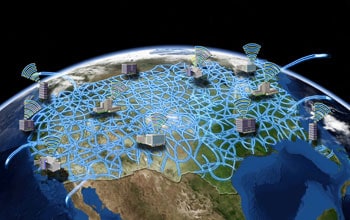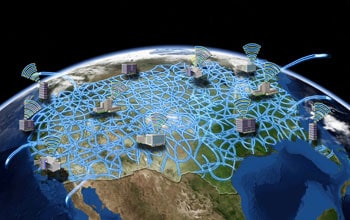
Gayle Pergamit writes with news of a US National Science Foundation initiative that “addresses one of the big problems that we talked about at the [Foresight Directed/Programmable Matter for Energy Workshop]: not having enough processor power. This will be a huge boost to getting true nanotech done.” The new initiative builds upon a June 2012 Executive Order to make broadband construction faster and cheaper. From the NSF press release in June 2012:
The National Science Foundation (NSF) announced that it will serve as the lead federal agency for a White House Initiative called US Ignite, which aims to realize the potential of fast, open, next-generation networks.
US Ignite will expand on investments in the NSF-funded Global Environment for Networking Innovation (GENI) project which lays the technical groundwork for this initiative. …
From the most recent “US Ignite” program solicitation:
This solicitation builds on the experience gained from initial US Ignite activities to further engage the US academic research and non-profit communities along with local cities, municipalities, and regions in exploring the challenges of developing and applying next-generation networking to problems of significant public interest and benefit. In particular, this solicitation has two tracks: the first encourages the development of applications in national priority areas that explore new uses for networks, giving rise to novel networking and application paradigms; and the second expands and enhances the ecosystems in which these applications will evolve and be evaluated. …
The deadline for full proposals is January 21, 2015. Anticipated program funding is up to $10 million to support both track 1 and track 2 projects, divided among six to ten projects. The program introduction notes:
Over the last two years, several NSF projects funded under these two DCLs have yielded novel ideas and applications in a variety of sectors, including advanced manufacturing, clean energy, transportation, cyberlearning, health information technology, and public safety/emergency preparedness. These projects have in turn demonstrated the potential societal impact of broad use of ultra-fast, software-defined networks. …
The program describes the goal of creating testbeds and “Living Labs”, with large-scale public participation, to share gigabit applications to address national needs, such as the above examples. Will it be possible to leverage program like this one to build infrastructure to facilitate using nanotechnology to address current needs?, Will such infrastructure also prove useful for the evolution of current nanotechnology towards high throughput atomically precise manufacturing, that is, productive nanosystems and molecular manufacturing?
—James Lewis, PhD
